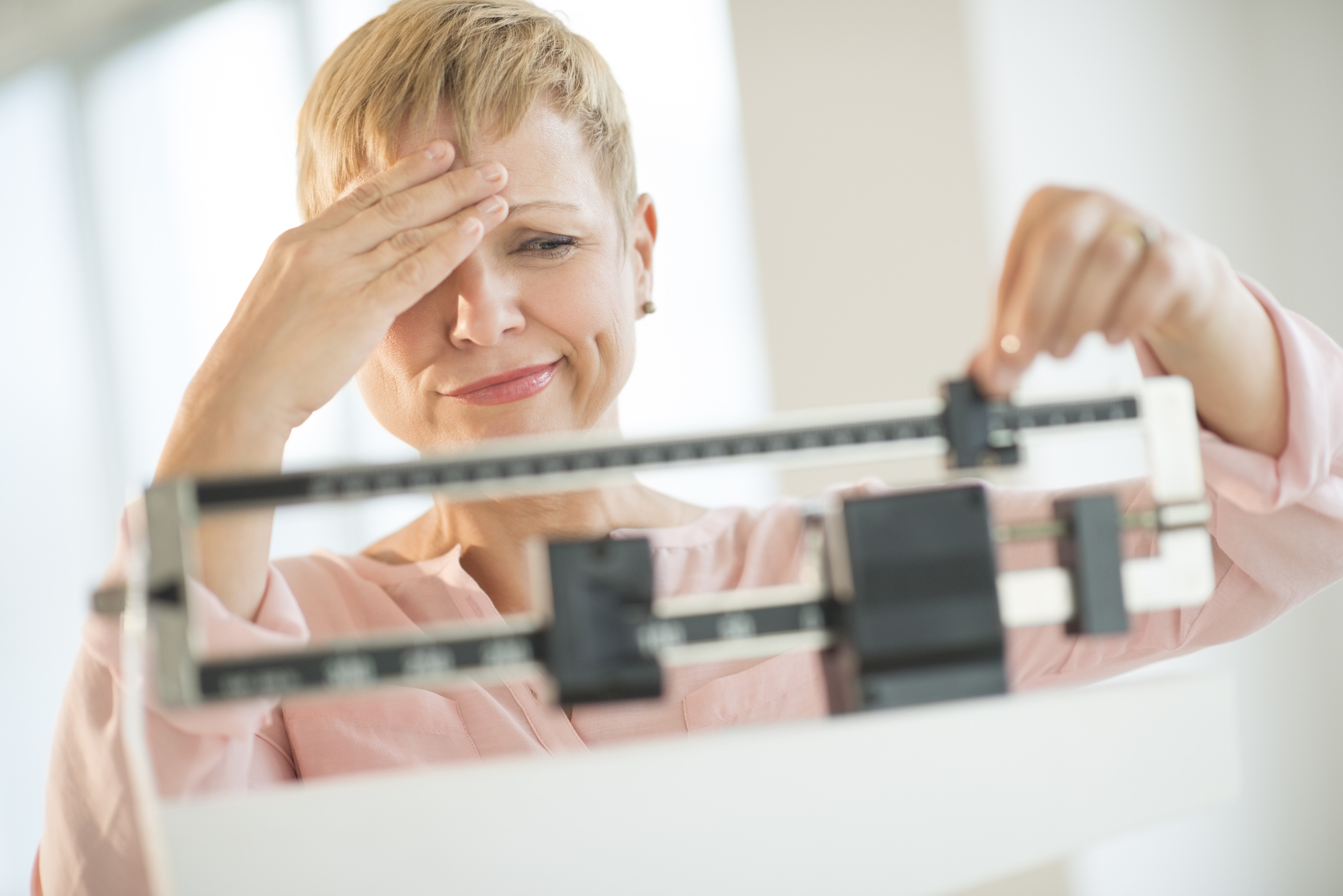Get Easy Health Digest™ in your inbox and don’t miss a thing when you subscribe today. Plus, get the free bonus report, Mother Nature’s Tips, Tricks and Remedies for Cholesterol, Blood Pressure & Blood Sugar as my way of saying welcome to the community!
The sleepy solution to less menopausal belly fat

I’ve recently given in and retired my size 8 jeans.
My “mature” body is simply seeing the effects of what’s fondly known as “middle-age spread.”
Once a woman’s body has been through menopause, it tends to accumulate “belly fat,” also known as visceral fat.
Women who experience weight gain around the middle during their menopausal years are at significantly greater risk of diabetes, heart attack and stroke.
So, preventing that belly fat from expanding is more than just a matter of vanity for me.
Until now, this post-menopausal weight gain was mostly attributed to a drop in estrogen levels. Not something I can do much about.
But recent research points to something much more controllable as a reason for that belly fat.
Disrupted sleep contributes to weight gain
Dr. Leilah Grant of Boston’s Brigham and Women’s Hospital questioned whether estrogen levels were the only factor contributing to menopausal weight gain.
After all, she reasoned, all women stop producing estrogen in menopause, while only about half of women gain weight. Something else must be going on.
Around half of menopausal women also experience some level of sleep disturbance. Was this affecting how their bodies used fat?
To find out, Dr. Grant and her research team studied 21 healthy pre-menopausal women. The women were allowed two nights of uninterrupted sleep, followed by three nights of being woken by an alarm every fifteen minutes, for two minutes each time.
After three nights of disturbed sleep, the women’s bodies used fat at a significantly lower rate, as compared with when their sleep had been uninterrupted.
A new way to keep mature women healthier
Around the time of menopause, obesity rates for women go way up. And obesity is directly linked to a laundry list of life-threatening conditions, from diabetes, heart disease and stroke to hypertension, gall bladder disease and high cholesterol levels.
“Our findings suggest that not only estrogen withdrawal but also sleep disturbances during menopause may contribute to changes in a woman’s body that could predispose midlife women to weight gain,” reports Dr. Grant.
“Helping women sleep better during menopause may therefore reduce the chances a woman will gain weight, which in turn will lower her risk of diabetes and other related diseases.”
Tips for sleeping better and beating belly fat
The traditional medical treatment for menopausal insomnia has been hormone replacement therapy (HRT). If you’re not a candidate for HRT, or if you choose to go a more natural route, there are some things you can do to get a better night’s sleep…
Melatonin is a hormone produced by the pineal gland that helps your brain know when it should sleep. The pineal gland releases varying amounts of melatonin depending on how much light you’re exposed to. In a perfect world, as the sun begins to set, melatonin is released. But artificial light and hormones can cause interference.
Supplementing melatonin is certainly safe and proven effective in helping people sleep better. You can also eat foods that contain significant amounts of melatonin in the evening, like tart cherries, tomatoes, walnuts or grapes.
But if you thought melatonin was just for sleep, think again. Here are a few other ways it benefits us as we age.
Improving your sleep environment and bedtime routine can also improve sleep. Give these tips a try…
- Wear loose clothing made of natural fibers.
- Keep your bedroom cool and well-ventilated.
- Avoid spicy foods before bedtime.
- Maintain a regular sleep schedule (go to sleep at the same time each night).
- Exercise regularly, but not before going to bed.
- Avoid caffeine, especially in the evenings.
- Avoid taking daytime naps (they can prevent you from sleeping well at night).
- Make sure to empty your bladder before going to bed.
Editor’s note: Are you feeling unusually tired? You may think this is normal aging, but the problem could be your master hormone. When it’s not working, your risk of age-related diseases skyrockets. To reset what many call “the trigger for all disease” and live better, longer, click here to discover The Insulin Factor: How to Repair Your Body’s Master Controller and Conquer Chronic Disease!
Sources:
Sleep disturbances may contribute to weight gain in menopause — Neuroscience News
Why middle-age spread is a health threat — Harvard Health Publishing
Regional Body Fat and CVD Risk in Postmenopausal Women — American College of Cardiology














